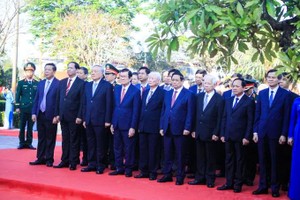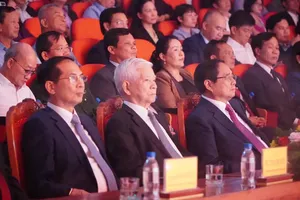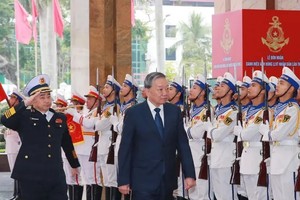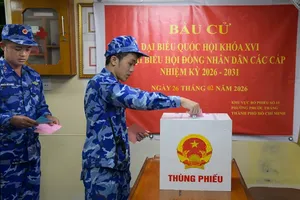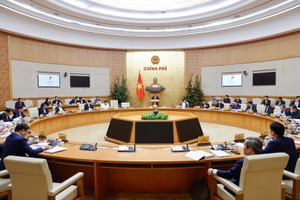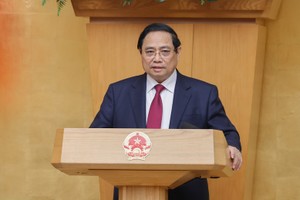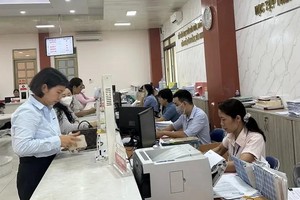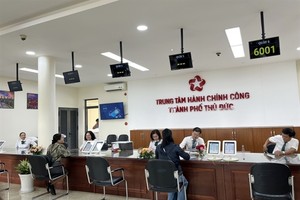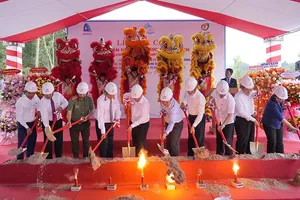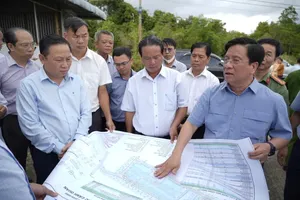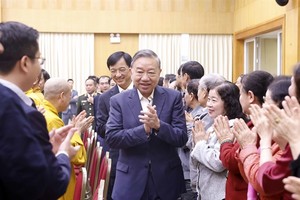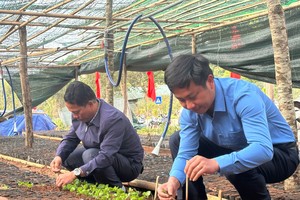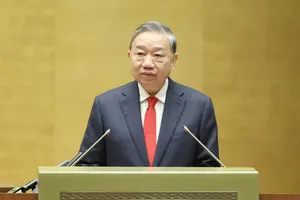 |
Doctors in Hanoi Medical University Hospital are treating patients |
Statistics from the Home Affairs Ministry reveal that from January 1, 2020 to June 30, 2022, nearly 40,000 civil servants and public employees quit their job, most of whom are under 40 years old and own a university degree.
Tran Xuan Back, a Gen-Z high-level employee of Creat Tree in Hanoi, said that besides discouraging salary rates, applicants for positions in the public sector have to pass an extremely strict hiring procedure that asks for both qualification and knowledge about administration and public services.
Bach hoped that there would be a clear framework for this procedure to draw more skilled laborers to state units, focusing more on professional competence instead of experience, qualification, age, or personal references, along with a competitive and cooperative working environment, a logical praising policy.
Assoc. Prof. Dr. Luu Quoc Dat from the National Economics University (in Hanoi) stated that the current salary mechanism in the public sector serves no role of promoting commitment of laborers, nor is it able to attract high-quality workers, experts, young scientists. It is advisable that the State urgently introduce preferential policies to offer both physical and mental conditions in a friendly working environment to draw those people to state agencies.
On April 13, in the formal discussion ‘Plans to Attract Young Scientists to Vietnam National University – HCM’, the university’s President Assoc. Prof. Dr. Vu Hai Quan stressed that it is necessary to give autonomy for these young talents to implement what they consider essential in their work. He recalled that after coming from abroad, he had been assigned to be the director of a center and a lab so that he could turn his intentions into reality via research, which was extremely meaningful to him at that time.
Dr. Quan added that it is critical to let young scientists understand the meaning of their tasks, hopefully resulting in more devotion and contribution to general social developments. Finally, it is also important to inform them of the model of mutual growth, where both employees and the organisation maintain a sustainable development thanks to cooperation.
Expert Vu Dinh Anh commented that the task of drawing skillful people to the public sector is an urgent one since without them, the state management apparatus will operate poorly, causing severe impacts on socio-economic growth of Vietnam in the long term.
The largest obstacle in attracting those laborers lies in recruitment criteria, especially the concept of ‘excellent laborer’. State agencies are in need of outstanding managers, policy planners, legal document composers. For instance, in the economic field, state units need good economic managers, not economists. These criteria lead to different Key Performance Indicators (KPIs) from those in the private sector.
Another important factor to consider is to eliminate ‘technical barriers’ – complicated dossiers requirements – that are preventing outstanding laborers from entering the public sector. Once they are hired, a favorable working environment must be offered to them while a fair performance evaluation mechanism must be adopted to keep them from running away. Last come appealing fringe benefits.
Deputy Head Luu Binh Nhuong of the National Assembly’s Committee of Public Feedback Handling voiced that there must be a specific salary system for talented laborers in the public sector based on the values and contribution given, not just the workload.
Yet one more matter is the devise a legal document or a law regarding talent use, National Assembly Delegate Le Thanh Van has continuously raised the issue of developing such a law in working sessions of the 13th and 14th National Assembly. The law must, for example, identify who talented people are, how the State assign them to suitable positions and protect them, what should be done to recruit or nominate a talent. After all, these talented laborers are the invaluable asset of a country.
It is worth mentioning that working in the public sector creates more contribution values to the community than a job in the private sector does. This might be one key factor that young people consider when applying for a position in the public sector. There are still many people who wish to devote to the general development of the society rather than merely focusing on earning money or moving higher in the career ladder, said expert Vu Dinh Anh.
Starting in 2019, the project ‘National Strategy to Attract and Make Effective Use of Talented People until 2030, with a Vision to 2045’ is still in the development stage. In compliance with the Resolution of the 13th Party Congress, the Prime Minister has directed the Home Affairs Ministry to complete this important project. The Ministry is now collecting ideas from experts, scientists, and related ministries in order to finish and implement it as soon as possible. The content of this strategy is expected to become the basic framework for localities, state agencies, and ministries to release corresponding regulations of their own.

